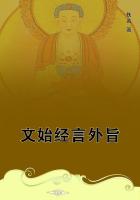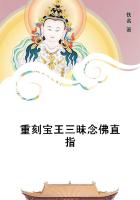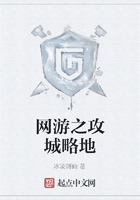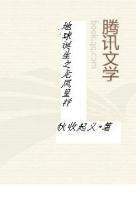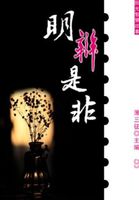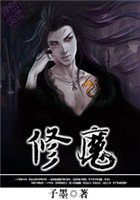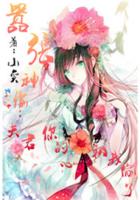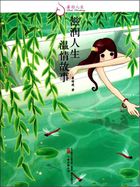"You have thus explained my love for Massimilla," said Emilio. "There is in me, my friend, a force which awakes under the fire of her look, at her lightest touch, and wafts me to a world of light where effects are produced of which I dare not speak. It has seemed to me often that the delicate tissue of her skin has stamped flowers on mine as her hand lies on my hand. Her words play on those inner keys in me, of which you spoke. Desire excites my brain, stirring that invisible world, instead of exciting my passive flesh; the air seems red and sparkling, unknown perfumes of indescribable strength relax my sinews, roses wreathe my temples, and I feel as though my blood were escaping through opened arteries, so complete is my inanition."
"That is the effect on me of smoking opium," replied Vendramin.
"Then do you wish to die?" cried Emilio, in alarm.
"With Venice!" said Vendramin, waving his hand in the direction of San Marco. "Can you see a single pinnacle or spire that stands straight?
Do you not perceive that the sea is claiming its prey?"
The Prince bent his head; he dared no more speak to his friend of love.
To know what a free country means, you must have traveled in a conquered land.
When they reached the Palazzo Vendramin, they saw a gondola moored at the water-gate. The Prince put his arm round Vendramin and clasped him affectionately, saying:
"Good-night to you, my dear fellow!"
"What! a woman? for me, whose only love is Venice?" exclaimed Marco.
At this instant the gondolier, who was leaning against a column, recognizing the man he was to look out for, murmured in Emilio's ear:
"The Duchess, monseigneur."
Emilio sprang into the gondola, where he was seized in a pair of soft arms--an embrace of iron--and dragged down on to the cushions, where he felt the heaving bosom of an ardent woman. And then he was no more Emilio, but Clarina's lover; for his ideas and feelings were so bewildering that he yielded as if stupefied by her first kiss.
"Forgive this trick, my beloved," said the Sicilian. "I shall die if you do not come with me."
And the gondola flew over the secret water.
At half-past seven on the following evening, the spectators were again in their places in the theatre, excepting that those in the pit always took their chances of where they might sit. Old Capraja was in Cataneo's box.
Before the overture the Duke paid a call on the Duchess; he made a point of standing behind her and leaving the front seat to Emilio next the Duchess. He made a few trivial remarks, without sarcasm or bitterness, and with as polite a manner as if he were visiting a stranger.
But in spite of his efforts to seem amiable and natural, the Prince could not control his expression, which was deeply anxious. Bystanders would have ascribed such a change in his usually placid features to jealousy. The Duchess no doubt shared Emilio's feelings; she looked gloomy and was evidently depressed. The Duke, uncomfortable enough between two sulky people, took advantage of the French doctor's entrance to slip away.
"Monsieur," said Cataneo to his physician before dropping the curtain over the entrance to the box, "you will hear to-night a grand musical poem, not easy of comprehension at a first hearing. But in leaving you with the Duchess I know that you can have no more competent interpreter, for she is my pupil."
The doctor, like the Duke, was struck by the expression stamped on the faces of the lovers, a look of pining despair.
"Then does an Italian opera need a guide to it?" he asked Massimilla, with a smile.
Recalled by this question to her duties as mistress of the box, the Duchess tried to chase away the clouds that darkened her brow, and replied, with eager haste, to open a conversation in which she might vent her irritation:--
"This is not so much an opera, monsieur," said she, "as an oratorio--a work which is in fact not unlike a most magnificent edifice, and I shall with pleasure be your guide. Believe me, it will not be too much to give all your mind to our great Rossini, for you need to be at once a poet and a musician to appreciate the whole bearing of such a work.
"You belong to a race whose language and genius are too practical for it to enter into music without an effort; but France is too intellectual not to learn to love it and cultivate it, and to succeed in that as in everything else. Also, it must be acknowledged that music, as created by Lulli, Rameau, Haydn, Mozart, Beethoven, Cimarosa, Paisiello, and Rossini, and as it will be carried on by the great geniuses of the future, is a new art, unknown to former generations; they had indeed no such variety of instruments on which the flowers of melody now blossom as on some rich soil.
"So novel an art demands study in the public, study of a kind that may develop the feelings to which music appeals. That sentiment hardly exists as yet among you--a nation given up to philosophical theories, to analysis and discussion, and always torn by civil disturbances.
Modern music demands perfect peace; it is the language of loving and sentimental souls, inclined to lofty emotional aspiration.
"That language, a thousand times fuller than the language of words, is to speech and ideas what the thought is to its utterance; it arouses sensations and ideas in their primitive form, in that part of us where sensations and ideas have their birth, but leaves them as they are in each of us. That power over our inmost being is one of the grandest facts in music. All other arts present to the mind a definite creation; those of music are indefinite--infinite. We are compelled to accept the ideas of the poet, the painter's picture, the sculptor's statue; but music each one can interpret at the will of his sorrow or his gladness, his hope or his despair. While other arts restrict our mind by fixing it on a predestined object, music frees it to roam over all nature which it alone has the power of expressing. You shall hear how I interpret Rossini's /Mose/."
She leaned across to the Frenchman to speak to him, without being overheard.



